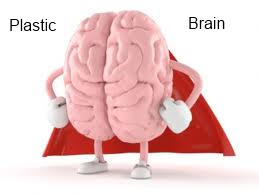We all, have our days when our brain just stops responding to anything we say or want it to do. There are times when it fails you in simple arithmetic like 6 + 9 = ? (did you get that right?) or the change the shop keeper owes you. Sometimes, this happens early in the mornings or sometimes its late in the night, after a hard day’s work but at the bottom of it all, we are sure that as
we are getting old, our brain is finding it hard to keep up.
 |
| Brain scanning technology has now reached levels of details that can map our brain activity. (Photo credit: Wikipedia) |
Analysis of these fMRIs at the end of the study period showed that participants who were involved in the learning Chinese vocabulary showed better brain activity than those who were not. The researchers also found that the brain network of such participants was better integrated. Interestingly, participants who performed better (among Chinese learning participants) were also seen to have improved brain activity over their counterparts.
Reference:
Yang, J., Gates, K., Molenaar, P., & Li, P. (2014). Neural changes underlying successful second language word learning: An fMRI study Journal of Neurolinguistics DOI: 10.1016/j.jneuroling.2014.09.004



